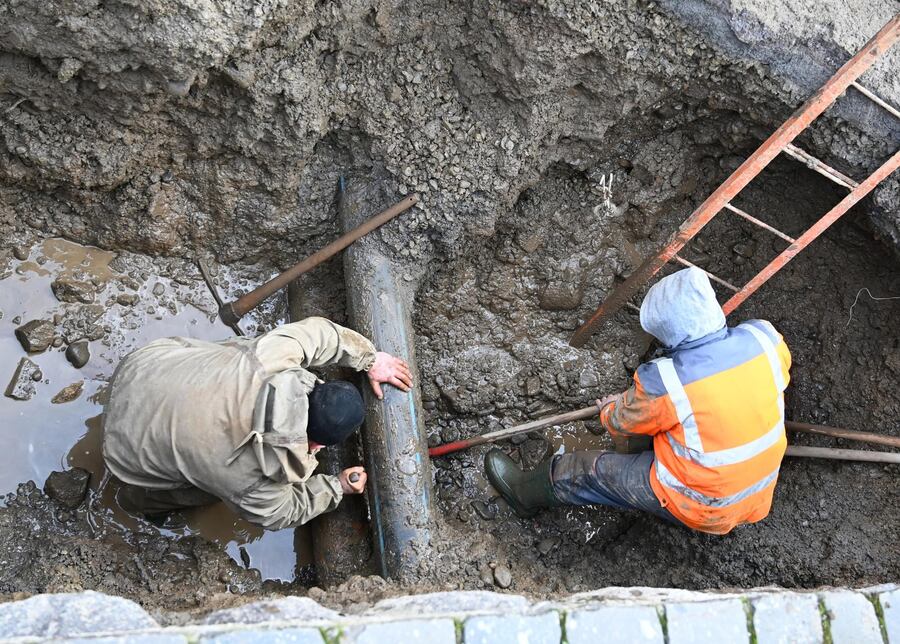Call This Monday to Get $50 OFF
Call us today
214-943-2424

Sewer line issues can be some of the most concerning and costly problems a homeowner faces. Whether due to age, damage, or root infiltration, a damaged sewer line can disrupt daily life and pose health risks. When repairs aren't sufficient, sewer line replacement becomes necessary. However, understanding the costs involved is crucial for homeowners planning such a significant investment.
Before determining the cost of sewer line replacement, a thorough assessment and inspection by a professional plumber or plumbing service are necessary. This initial step helps identify the cause and extent of the sewer line damage. Some plumbing companies offer free or discounted inspections, while others may charge a fee. The cost of this assessment typically ranges from $100 to $500, depending on the complexity of the inspection.
Labor costs constitute a significant portion of sewer line replacement expenses. The complexity of the job, including excavation, removal of the old sewer line, installation of the new line, and backfilling, influences labor costs. Additionally, factors such as the depth of the sewer line and the presence of obstacles like trees or structures can affect the amount of labor required. On average, homeowners can expect to pay between $50 to $250 per hour for labor, with total labor costs ranging from $1,000 to $5,000 or more.
The choice of materials for sewer repair and replacement also impacts costs. Traditional sewer line replacement involves using PVC, cast iron, or clay pipes. However, trenchless sewer line replacement, which is gaining popularity due to its efficiency and minimal disruption, typically utilizes high-density polyethylene (HDPE) or cured-in-place pipe (CIPP). While trenchless methods may incur higher material costs initially, they can result in overall savings by reducing labor and excavation expenses. Material costs for sewer line replacement can range from $50 to $250 per linear foot, depending on the type of pipe and quality.
Obtaining permits for sewer line replacement is often a requirement mandated by local building codes and regulations. Permit fees vary depending on the municipality and the scope of the project but typically range from $100 to $500. Homeowners should factor in these additional costs when budgeting for sewer line replacement.
After sewer line replacement is complete, cleanup and restoration of the excavation site may be necessary. This includes backfilling the trench, repairing landscaping or hardscaping, and restoring disturbed areas to their original condition. Cleanup and restoration costs can vary widely depending on the extent of excavation and the specific requirements of the property. Homeowners should budget accordingly for these post-replacement expenses, which can range from a few hundred to several thousand dollars.
Homeowners need to set aside contingency funds when budgeting for sewer line replacement. Unexpected challenges or complications during the sewer repair process, such as encountering additional damage or unforeseen obstacles, can increase costs. Setting aside an additional 10% to 20% of the total project cost as a contingency fund can provide peace of mind and financial flexibility to address any unexpected expenses that may arise.
Homeowners should consult with reputable plumbers at Texas Rooter or their personal plumbing repair services to obtain accurate estimates tailored to their specific needs and circumstances. While sewer line replacement can be a significant investment, addressing damaged or deteriorating sewer lines promptly can prevent further damage and ensure the continued functionality and safety of the home's plumbing system.
We all know that extremely cold weather can lead to frozen and burst pipes.…
Read MoreHave you ever walked into your basement after a heavy rain and found water everywhere?…
Read MoreHave you ever been startled by a strange noise coming from your water heater? Those…
Read MoreWater isn't always as pure as it seems. Contaminants—from harmless minerals to potentially harmful chemicals—can…
Read MoreImagine you’re hosting a backyard barbecue in sunny Texas when you…
Read More